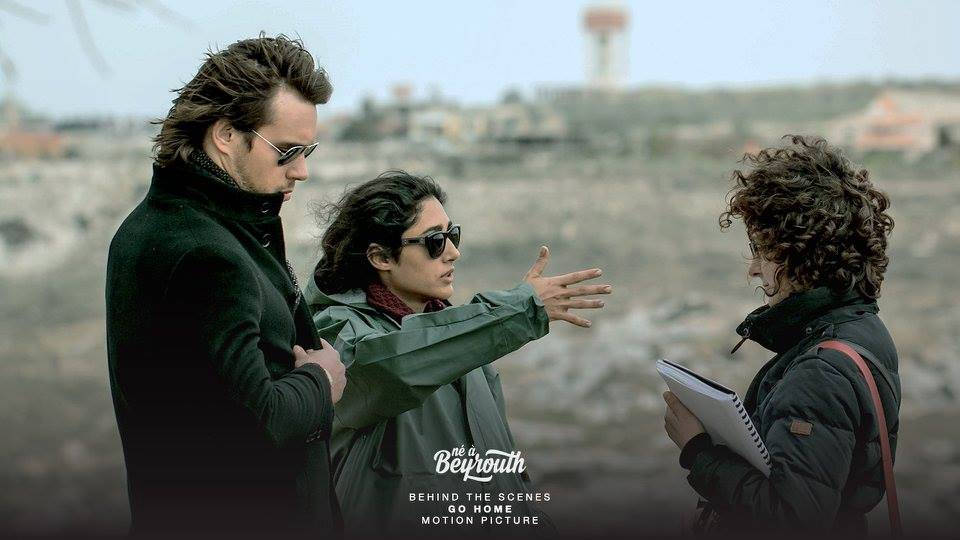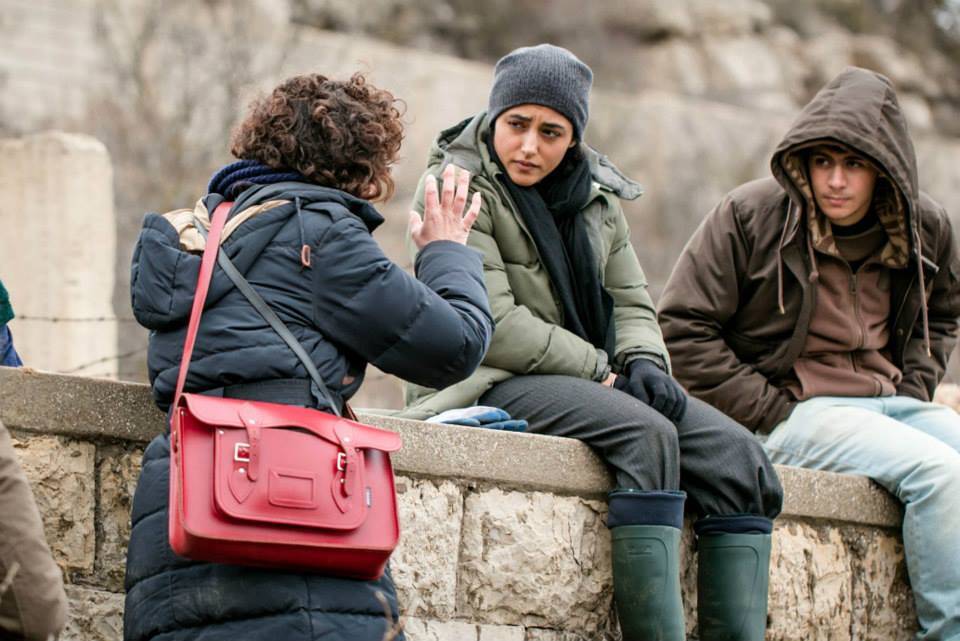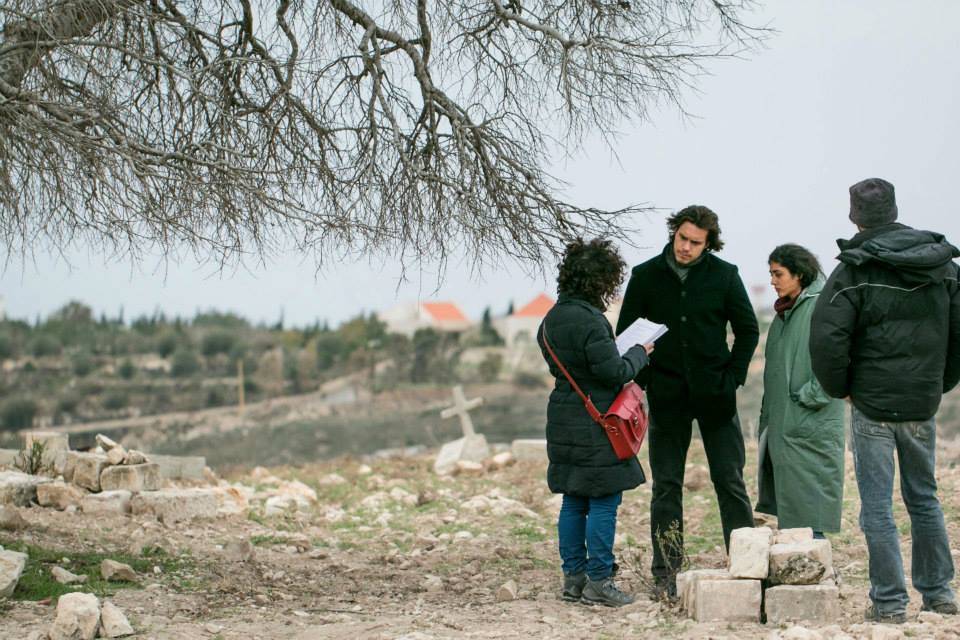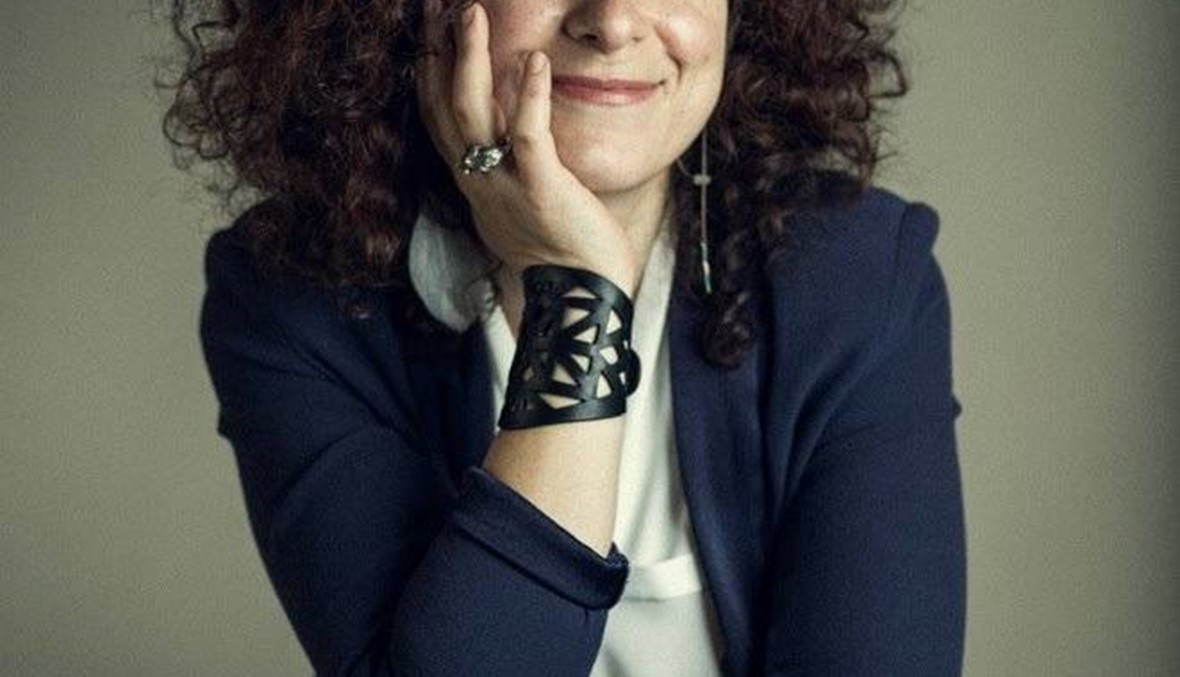A conversation with Jihane Chouaib, writer and director of Go Home
A small quaint dimly lit movie theater, where cinephiles gather to enjoy independent or foreign films.
Off to the corner, a young film critic sits across from Jihane Chouaib, black curly hair with a certain je-ne-sais-quoi aura that makes her familiar, yet mysterious. She is the writer and director of the most recent Lebanese film, Go Home.
Between the murmurs of the entering audience, the film critic and Jihane’s conversation is heard.
FILM CRITIC: (enthusiastic) So, how long have you been a filmmaker?
JIHANE: (smiles) Oh, a long time…
FILM CRITIC: ... and have most of your films been produced in France?
JIHANE: Yes, I began making films in France…making shorts and medium lengths…and then in 2010, I began shooting a feature length documentary in Lebanon, my first film in my home country. It was shown in theaters in France in 2012. Go Home is my second feature in Lebanon.
FILM CRITIC: This one being a narrative or fiction…
JIHANE: Yes, exactly.
More potential audience members fill the lobby of the theater. Some stand in front of a wall with framed film posters, while others look at the brochures of upcoming films.
The young film critic and Jihane, in their own bubble, continue their conversation.

FILM CRITIC: I watched the trailer earlier this evening and noticed you had an international group of actors. What was it like working with such a diverse cast, and did you face any problems?
JIHANE: It was such a challenging and exciting experience because of the language barriers. I don’t speak Arabic fluently…if I am in Lebanon for a few months I can get by, but it is difficult. Some of the actors I could speak with them in English or in French, but the ones who could not understand either, I had to find a way to communicate with them.
FILM CRITIC: (leans in) Can you give me an example?
JIHANE: Well, I had to place myself in the mindset of the character, and move and express myself through the character’s physicality.
As Jihane explains this, she gestures with her hands and comes alive – a clear indication of how passionate she is about her craft.
FILM CRITIC: What was the inspiration to write this screenplay?
Jihane stares off into the distance, it is as if she leaves the present and goes back to that exact moment.
She smiles, then…
JIHANE: It was an image…
FILM CRITIC: An image?
JIHANE: Yes, an image of a girl standing in the middle of a garden filled with garbage. You see, when I came back to my family home, after the war – I remember my home being covered with garbage, and I believe seeing that stayed with me all these years.
FILM CRITIC: So, one can say that Go Home is a semi-personal film…
JIHANE: One could say that…but it is not my story. It is personal, and it is made up of many events that I know very well, but it is not “my story”. I am from the “Children of War” generation. While I was writing the screenplay in Paris, and the events of the summer of 2006 happened, it brought back all my childhood and I hit a serious writer’s block. It wasn’t until after I had finished the documentary that I re-visited Go Home.
FILM CRITIC: Your film is truly a multi-national effort. With Belgium, Switzerland, France, and Lebanon joining forces to make this product. How important do you think it is for cinema to continue these multi-country productions when the concept of globalism is starting to wither away?
JIHANE: Really, I don’t know…the difficulty we faced with this film is due to the fact that it was this trans-continental production. We were not in this box of “Lebanese Film”, or in a niche…I wanted to tackle the complexity of identity…So when we were trying to get it made – it was difficult to place it or categorize it. We had three languages in the film, as well as an international cast and crew…as perfect as that sounds, in many ways it complicated getting this film off the ground.

FILM CRITIC: Speaking of the international cast, Golshifteh Farahani, is Iranian and she is portraying a Lebanese character. Were there any controversies or challenges when you cast her?
Jihane smiles before answering. It is almost as if she was expecting this subject to come up.
JIHANE: I felt very free when making that decision. Golshifteh has an extraordinary presence. She’s beautiful, mysterious, and the transparency and purity of her acting anchor the film outside of a basic reality. Not only are we looking at Nada, we are glimpsing at her soul.
Pierre Sarraf, salt and pepper hair, a partner at Né à Beyrouth Films and one of the producers of Go Home, walks over and guides the young film critic and Jihane into the screening room for the film to begin.
The young film critic and Jihane walk towards another seating area in a corner and sit. It takes a few moments before the young film critic speaks.
FILM CRITIC: The film was truly good. It touched me more than I was expecting it to.
Jihane smiles in appreciation.
FILM CRITIC: The film is very precise, and everything has a purpose. Was all of this preplanned? Were there rehearsals? What was the preproduction process like?
JIHANE: We had a table reading with Golshifteh and Maximillien only. I wanted to ensure their relationship as siblings was naturalistic and believable. The rest of the cast was all prepped on-set. But I was rewriting and concreting my vision all the way till production, and some rewrites even occurred during production.
FILM CRITIC: What about the cinematographic aspects of the film? How close did you stick to the vision you set during pre-production?
JIHANE: Well I had many visions for the film…and although I knew that the story was very important, I also wanted the film to have this…not symbolic…but I wanted it to feel like a…
FILM CRITIC: …a poem?
JIHANE: (smiles) Yes! A poem.
An audience member walks over and congratulates Jihane, and she humbly thanks him.
FILM CRITIC: Was the nonlinear aspect of the narrative a decision you made during your writing process or was it created during post-production?
Jihane shakes her head.
JIHANE: No, this was definitely decided during my writing process. The memories at first were dreams then I made the decision to make them memories. I would write them and change certain aspects of them. The last scene I wrote was the final memory that Nada has.

FILM CRITIC: The film’s ending and its two protagonists, are clear and yet not so clear at the same time. Was this difficult for you to write and how difficult was it for the actors to embody that? Everything was enigmatic, it was like…
JIHANE: …like life. I rather enjoy films that begin in the middle of a phrase or a line of dialogue. Where we don’t know everything and feel like we have to put everything together…It’s like when you meet someone, they have a million stories before you that made them who they are and you don’t always get to know all those stories.
FILM CRITIC: Final question… As a female filmmaker, with all of Hollywood and the cinema industry pushing for more equality and female representation in films, what advice would you give young female filmmakers in Lebanon?
Jihane takes a moment.
She places her hands before her mouth and searches within her. Then, smiles.
JIHANE: Don’t try to please anyone but yourself.
With that the young film critic and Jihane stand, shake hands and part ways: one to transcribe a conversation with a filmmaker, and the other to continue her journey to exhibit her latest film and hopefully touch a few more souls.


 اشترِك في نشرتنا الإخبارية
اشترِك في نشرتنا الإخبارية










